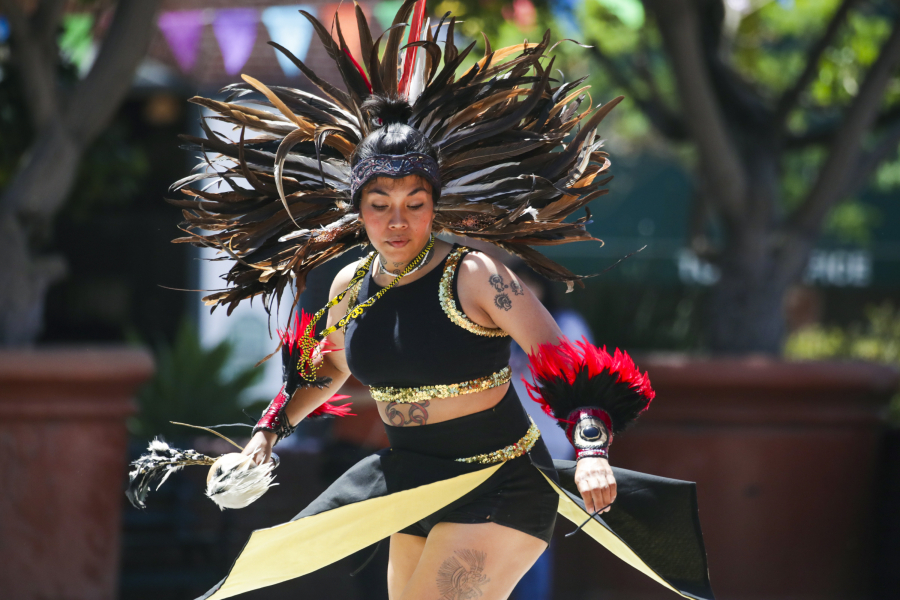LOS ANGELES — Ruby Marek and her family were crossing the U.S.-Mexico border and looking forward to the annual Mexica New Year celebration in San Jose, where Aztec dancers from all over the nation and from Mexico gather in celebration.
She and her family, including her kids, form the majority of Danza Azteca Tenochtitlán, a group of 10 Los Angeles-based Aztec dancers who perform in elaborate costumes decorated in feathers and to the beat of traditional drums. They picked up her brother-in-law from the airport in Tijuana and headed back to Los Angeles, excited about the upcoming celebration where they would be performing.
Her brother, who lives in Mexico, had also been invited to perform in San Jose.
But when the group reached the San Ysidro border crossing on March 7, an agent pulled the family and their van to the side. The family was selected for a cursory search, and agents spotted Marek’s hair clip and a new pair of earrings made with parrot and emu feathers.
“I forgot I had the hair clip in the glove box,” she said in an interview. “(The agent) said, ‘Did you know that it’s illegal to have this?’”
That prompted U.S. Customs and Border Protection to search the entire car, Marek said.
Marek’s brother-in-law was carrying with him his ceremonial garb used in Aztec dances, she said, including a headpiece that has 500 to 1,500 feathers. His wife and their son also had outfits with feathers, and Marek said she too had some feathers she used in her dances in the car.
“It was a big team of (agents),” she said of the search. “It was like you see in the news, when they’re searching cars from drug traffickers. They were searching the tires, they were checking underneath the car, everything.”
Until that point, she said, she was unaware that it was against the law to carry some of the feathers across the border. She believed that because the feathers — many of them from ducks, turkeys, roosters and parrots — were not from exotic or endangered animals that she was fine to carry them.
But agents from the Department of Interior confiscated hundreds of feathers, telling her and the family they were unable to bring them across the border.
According to documents given to the family after the incident, officials seized more than 1,500 feathers from parrots, pheasants, ducks, doves, macaws, ravens, turkeys, emus and hawks.
Marek was fined $500 for not declaring the items.
“I paid it like if I had committed a crime,” she said, “but I don’t think I did anything wrong.”
Now Marek and Danza Azteca Tenochtitlán have filed a claim against the U.S. Department of Interior, she told the Los Angeles Times on Tuesday. They say the feathers were seized even though they are part of their cultural and religious practice, which Marek said they tried to explain to the agents.
The family is claiming emotional distress, is asking for the feathers to be returned, and is seeking $1 million in damages per person.
The family’s attorney, Jaime Gutierrez, says the family expects to file a lawsuit if the claim is denied.
Gutierrez said the feathers should have been treated like ceremonial items used by Native American tribes in the United States and not been seized.
Marek said she hoped the feathers, which she said her family had collected over the years, would be returned. Some of the feathers, after being deemed legal, have been returned, she said. Others, however, like those from pheasants and macaws, are still being held.
Her brother-in-law, she said, has had his feathered headpiece for more than 30 years. She said she’d also collected the macaw feathers from a friend who had collected feathers shed from her pet over the years.
“This is part of what keeps our culture alive,” said the 43-year-old. “Danza for us is a celebration.”
She said her attempts during the seizure to try to explain how the feathers were used were fruitless.
“It feels like I was being treated as a criminal,” she said, “as someone that did something wrong.”



